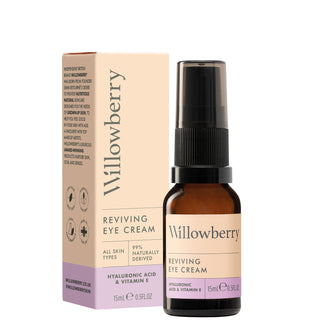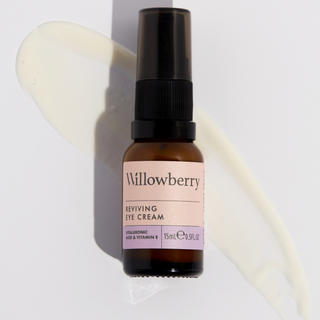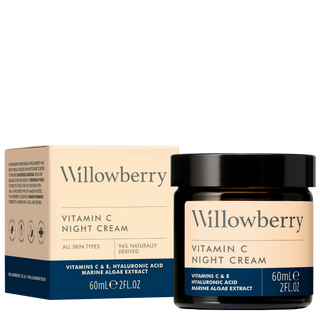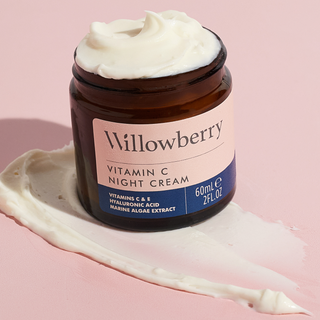The age-old saying 'you are what you eat' proves that some theories last the test of time, as dermatologists believe it's a mantra to live by as certain foods can provoke an inflammatory reaction in the skin, leading to dryness, breakouts and excessive oil levels.
With many of us perhaps looking to amend our diets for 2021 and boost our health with less sugar and alcohol and more fresh vegetables and grains, we take a closer look at how what we put inside, shows on the outside.
WHAT TO CUT BACK ON
Sugar
Over-done it on the Quality Street this year? If you've got a sweet tooth you're most likely going to be experiencing dry, dull skin, redness and perhaps even premature ageing. Sound familiar? This is due to the over-production of bacteria in the gut caused by, you guessed it, sugar. The toxicity of sugar is so severe on our complexion, dermatologists believe it can add up to 10 years to our face as the white stuff binds to amino acid chains (what we need for collagen production), clogging up the entire system and compromising our immune system at the same time.
Although we're clearly classing sugar under the more conventional, processed means, experts also warn us to consume sugary fruit and vegetables in moderation. These include beetroot, carrots, mangos, apples and melon, whereas kiwi and blackberries are better.
Ready meals and takeaways
Ready meals and takeaways usually contains high amounts of fat, salt and/or sugar (which can all wreak havoc on skin) and because the food isn't fresh, it may not contain all the nutrients the original food once had. While they are handy when you are short on time, and let's face it, some of our favourite takeaways are darned delicious!, make sure they are an occasional treat rather than a regular occurrence.
Refined carbohydrates
Not all carbs are created equal; unrefined carbs are unprocessed and still contain the natural fibre from the food source, while refined carbs have been processed and the natural fibre and nutrients are removed.
Refined carbs include white pasta, rice and bread and sugar/sugar-based foods such as cakes, biscuits and sugary drinks.
Unrefined carbs include brown/wholegrain pasta, rice and bread, many fruit and vegetables, lentils and beans.
Refined carbs not only have no nutritional value, they are also digested quickly, which can cause blood sugar spikes - and crashes. Meanwhile, unrefined carbs are not only a great source of fibre, vitamins and minerals, they are also digested more slowly and keep you satiated for longer.
From a skin point of view, refined carbs cause inflammation and damages the collagen and elastin in your skin - these are responsible for the structure of your skin so when collagen and elastin deplete, it leads to premature sagginess, lines and wrinkles. For good health and good skin, stick to the unrefined kind.
Alcohol
We've written before about the affects of alcohol on the skin, and let's face it - we all know that too much booze can directly affect the body, and therefore the skin's appearance. Indulge in a little of what you fancy, but try to limit your alcohol intake to avoid putting too much pressure on the body.
WHAT TO OPT FOR
Nuts
Nuts are a powerhouse of vitamins, minerals and essential fatty acids. For example, almonds are a fantastic supply of vitamin E, walnuts are high in omega-3 fatty acids which help to target inflammation and brazil nuts contain selenium for skin health and healing. Nuts have a high fat content, but it's mainly the good fats you are eating, with walnuts, almonds, hazelnuts and pistachios scoring highly in this area. Just keep your portion size to a handful and you're good to go.
Fish
It’s estimated that humans eat more than 330 billion pounds (150 million tonnes) of fish each year and it can do wonders for our skin as a result. As a good source of collagen, omega-3 and vitamin E, fish can improve our skin health by boosting hydration and protecting it from sun damage, leading to a more glowing complexion. Considered a superfood, salmon is a particularly helpful food for skin health as it has high levels of vitamin D (for added sun protection) and astaxanthin, a chemical compound that is an antioxidant and anti-inflammatory.
Fruit and Vegetables
Cramming in our five-a-day has never felt so important but experts now believe that five is just not enough and we should be aiming for a minimum of seven pieces of fruit and vegetables for optimum health. But when it comes to our skin, eating the rainbow could be the difference between clear skin and a glowing complexion. Although there are a few pieces of fruit and veg that should be eaten in moderation, dermatologists believe the following should be eaten in abundance for beautiful skin:
Dark green leafy vegetables – Think spinach, kale, broccoli and brussel sprouts, which are all packed with vitamin K to boost blood circulation.
Citrus fruits – oranges, lemons, limes and grapefruit are key antioxidants that can brighten skin and help fade pigmentation. The same can also be said of bell peppers, which do the same job.
Avocados – Loved by wellbeing warriors, avo's are a great source of healthy oils and vitamin E to help barrier function and retain moisture.
Sweet potatoes – Swap white potatoes for their orange sister and reap the rewards of vitamin A, which can help reduce oil production in skin.
Tomatoes – Full of lycopene, an antioxidant that helps stave off premature ageing, experts believe it's more readily absorbed when tomatoes are cooked, so start making that pasta sauce from scratch.
Berries – Berries such as blueberries, blackberries are packed full of phytonutrients that act as anti inflammatories in the body, which help to promote clear skin.
Healthy drinks
You've heard it a thousand times - make sure you drink 8 glasses of water a day for proper hydration, and opt for herbal teas over sugary drinks. You'll see the difference in your skin in no time.
Article by Jessica Harris
Willowberry is 'Nutritious Natural' skincare for grown-ups for your best skin. Loved by top make-up artists and facialists, Willowberry's luxurious award-winning products protect skin’s natural barrier function, to nourish and transform grown-up skin. As seen in Vogue, Independent, The Telegraph, This Morning and more.









